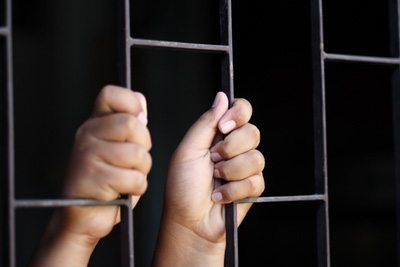If You Don’t Think Women Who Get Abortions Should Go to Jail, Don’t Support Criminalizing Abortion
Pro-choice advocates must highlight the evidence that prosecutions and imprisonment are the logical and inevitable outcome of criminalizing abortion. We must drive a wedge into this gap between some people’s ambivalence about abortion and their intuitive distaste for imprisoning women.

Cognitive dissonance is one way to describe the thinking of those who agree with the criminalization of abortion, but don’t agree with penalties for those who break the law. What sometimes supports this apparently contradictory position is knowing someone who’s had an abortion. In Brazil, an estimated one million illegal abortions annually are matched by just 100 prosecutions. Many people know women who’ve had an illegal abortion, but even those who disapprove have no desire to see them go to jail.
These are the findings of a new survey in Brazil, published by Reproductive Health Matters. Participants in the survey expressed diverse opinions as to when abortion is and is not justifiable. Many knew someone who had had an abortion, and while participants were divided as to how liberal they were about abortion, most (over 50 percent) opposed jail sentences for women who have had abortions, and the vast majority (over 80 percent) opposed jail sentences for the women they knew. Similar views are expressed in a video shot in Ecuador, Peru, and Bolivia by Ipas. Even clinic-picketing antis who lobby loudly for the criminalization of abortion in the United States have been known to wriggle uncomfortably when asked to express exactly how long prison sentences should be for women who have abortions.
Though there is not a shred of evidence to support the view, it seems that many people who oppose abortion hope that criminalizing it will simply make the practice stop without the need to actually jail women. The truth is, of course, that abortions continue to take place regardless of whether they are safe or unsafe, legal or illegal. Moreover, where abortion is prohibited or restricted by law, women and providers will go to prison.
This has never been so starkly demonstrated as it is in a new report published by the International Campaign for Women’s Right to Safe Abortion, called Abortion in the Criminal Law: Exposing the Role of Health Professionals, the Police, the Courts and Imprisonment. The report presents evidence from around the world about women and health practitioners imprisoned for abortion-related crimes. The report highlights cases of women and practitioners prosecuted and imprisoned on every continent. Some women have been arrested after seeking help for complications of unsafe abortion, some after seeking care for spontaneous miscarriage or stillbirth.
The report presents numerous examples of women being subjected to degrading and humiliating treatment and having their rights violated in multiple ways, including being handcuffed to hospital beds, being forced to confess that they have had an abortion before being treated, and being refused abortions even when they meet the legal criteria to receive one. Having been handed over to the police, many have received extremely lengthy sentences—longer than those for convicted murderers—while some women have waited for years in prison to be charged, and, appallingly, some have been completely forgotten by the system and remain in prison without any prospect of either trial or release.
The report acknowledges the many abortion providers who have put their own careers and liberty at risk to help desperate women. Some have faced prosecution and jail, others fines, suspension from their jobs, and the closure of their clinics without being charged or prosecuted. However, it is also often providers, the very people women have entrusted with their lives, who are responsible for reporting them to the criminal justice system.
However, if, as the evidence suggests, even those who are opposed to abortion in principle often do not support imprisonment, there may be some glimmer of light in the darkness—a solid basis for a worldwide campaign to decriminalize abortion. Advocates must highlight the evidence, as the report does, that prosecutions and imprisonment are the logical and inevitable outcome of criminalizing abortion. We must drive a wedge into this gap between some people’s ambivalence about abortion and their intuitive distaste for imprisoning women. It is time to separate, isolate, and shame those who genuinely believe prosecution and imprisonment are an appropriate response to a woman who has (or may have had) an abortion, or a health worker who has provided one.
